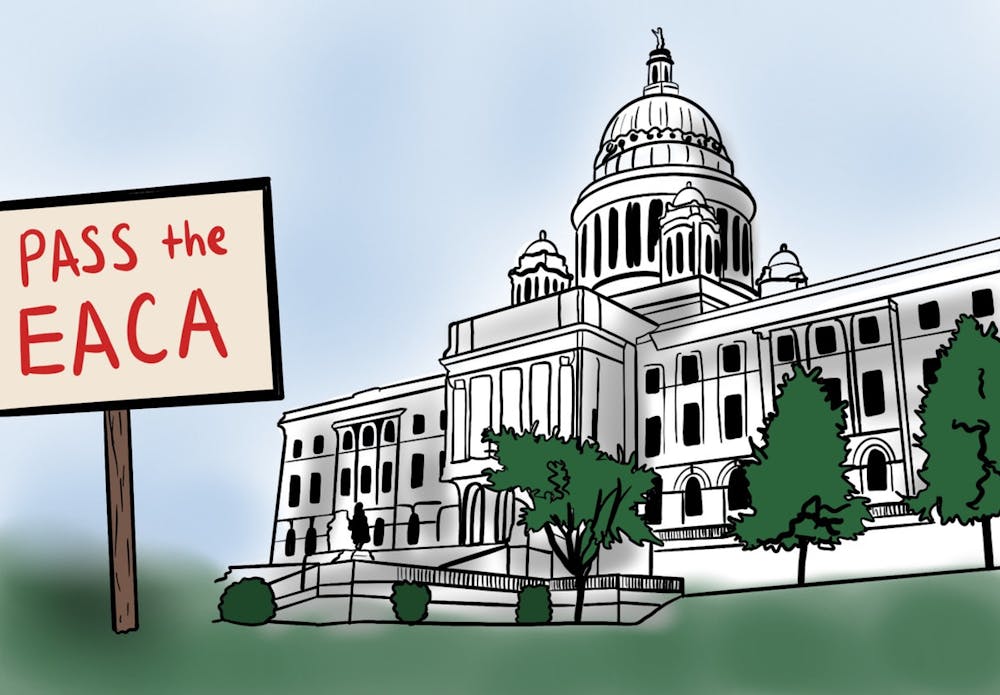The Rhode Island House of Representatives voted to pass the Equality in Abortion Coverage Act Thursday, which would ensure coverage of abortion procedures for individuals on state employee health plans and on Medicaid. A total of 49 representatives voted in favor of the bill’s passage, with 24 voting against. The House passage follows three years of the EACA — which was first introduced in 2020 — failing to make it to the governor’s desk to be signed into law.
The bill will now move on to the Rhode Island Senate.
Majority Whip Katherine S. Kazarian (D-East Providence), who introduced the bill in the State House this year, said that “this bill will ensure that all women, no matter what insurance plan they’re on, will receive healthcare coverage.”
“It’s about ensuring that women don’t have to make medical decisions based on what their coverage allows,” she said, adding that the bill is “not about re-debating the question of choice.”
“This is about equity, this is about coverage,” Kazarian said.
Representative Robert E. Craven Sr. (D-North Kingstown), who supported the bill, said he sees the EACA as the next step in protecting the right to an abortion.
“I stood on this floor in 2019 and we codified Roe v. Wade,” Craven said, referencing the 2019 Reproductive Privacy Act, which wrote Roe v. Wade’s protections of abortion rights into Rhode Island state law. “This is the accompanying bill. We created a right that a woman had to get an abortion (in 2019) … (but) you can’t exercise the right until you can afford to pay for it.”
Opposition arguments to the bill dominated much of the hearing. Many of the legislators who opposed the bill cited the burden it could place on taxpayers. Some representatives also voiced objections to the bill on what they considered to be moral grounds. Others argued that contraceptive access should be expanded or made free instead.
Representative Charlene M. Lima (D-Cranston) said the state must not “mandate taxpayers who — for personal reasons or religious reasons — do not agree with abortion to have to pay for it.”
Lima, who described themselves as pro-choice, called on the members of the State House themselves to fund abortion coverage.
“It is so easy to spend money when it’s not yours,” Lima said. “If the 50-something people on this floor want to pay for abortion … use your money, not the taxpayer’s money.”
She added that the bill has come at the “worst possible time,” citing concerns about inflation. “People are taxed out,” Lima said. “They’re tired.”
Deputy Majority Leader Arthur J. Corvese (D-North Providence) also opposed the bill, primarily due to his belief that abortion for elective reasons is an “abomination and unconscionable in a civilized society.”
But Corvese stated that termination of pregnancy in the case of rape, incest or physical endangerment to the pregnant individual is a legitimate medical procedure. “The bill before us does not differentiate the use of the funds,” he said.
“We women are under attack throughout this country for a right we’ve possessed for 50 years,” said Representative Carol Hagan McEntee (D-Narragansett). “This is a very serious decision made by any woman, and it can be agonizing. Let’s give them the support they need through their healthcare insurance.”
Many of those who spoke in support of the EACA emphasized that the purpose of the bill was not to debate the right to an abortion itself. Instead, they said that the EACA is about women’s healthcare and healthcare equity more broadly.
Representative Edith Ajello (D-Providence) also argued that the notion that taxpayers can decide whether they want to pay for a policy “doesn’t work.”
“I’m old enough to remember when there were many people in Rhode Island and across the country who were offended that their tax money was going to support the war in Vietnam,” Ajello said. Others did not want to pay to support universal medical care. But these groups still had to pay taxes that funded treatment they opposed or did not utilize themselves, she said.
Representative Karen Alzate (D-Pawtucket) said she grew up with many women who had children because they could not afford an abortion, women who had to choose between paying rent or taking care of another child and women who struggled with their insufficient healthcare coverage.
“This is about women’s health care,” Alzate said, emphasizing how women’s rights are continuously under attack, particularly for trans women and women of color. “This is equity.”

Yael is a senior staff writer covering city and state politics. She is junior, and hails from the Bay Area.





